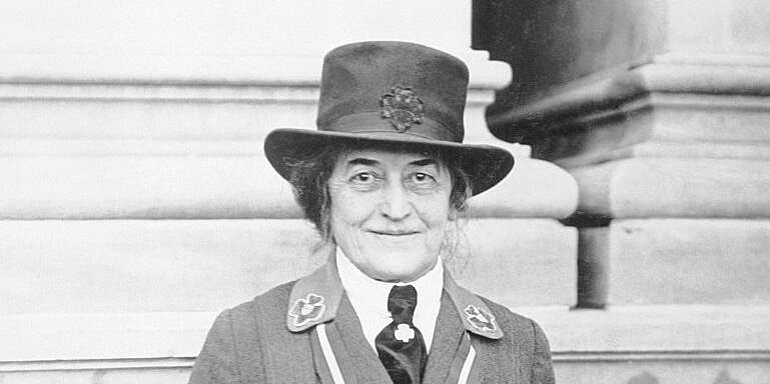
Imagine if your children could enter a club that was open for all, but also counted amongst its alumnae Serena and Venus Williams, Taylor Swift, Hillary Clinton, Condaleeza Rice, and every female astronaut that has flown into space. Thanks to Juliette Gordon Low, that club exists. As of today, the Girls Scouts is the largest leadership organization for girls in the world, with 2.6 million members worldwide and 59 million American alumnae still drawing on their Scout experiences.
Juliette Gordon Low was born to a well-respected Savannah family. Nicknamed “Daisy” growing up, she was known for her eccentricity, love of the arts, charismatic spirit, and desire to help others. Due to infections, Low lost the majority of her hearing at a young age and was partially deaf for her entire life. She married William Mackay Low, the son of a wealthy businessman, and the newly-wed Lows moved between his properties in the United States and England. In England, Juliette Gordan Low enjoyed hosting many events that had guests of high esteem from the court, including HRH Prince Albert. Although her marriage fell apart, Low did not finalize the divorce from her husband before he died.
She then met Lord Robert Baden-Powell, who had just created the Boy Scouts, and expressed interest in founding a similar organization for girls. With Baden-Powell’s blessing and support, Low spearheaded the creation of the earliest iteration of the Girl Scouts (previously known as Girl Guides) in London and Scotland. Eventually, she took the organization to the United States, forming the first troop with 18 students from her sister’s school. From these early seeds, Low nurtured what became the full-fledged organization it is known to be today, travelling between America and Britain throughout World War I to champion the Girl Scouts, supporting refugees in the U.K. and raising funds for soldiers in their families.
Low defied class and racial prejudices of the time to make her organization available to all girls who wanted to benefit from her program. Even after Low was diagnosed with breast cancer in her 60s, she kept her diagnosis private, seeking secret treatment while fulfilling her responsibilities to the Girl Scouts in earnest. She even snuck away from recovery to perform essential duties.
After Low’s death, she was honored by hundreds of Girl Scouts at her funeral, her birthplace was listed as a National Historic Landmark, and she received a series of posthumous awards. She has been inducted into the National Women’s Hall of Fame, and received the Presidential Medal of Freedom from President Obama in 2012.
